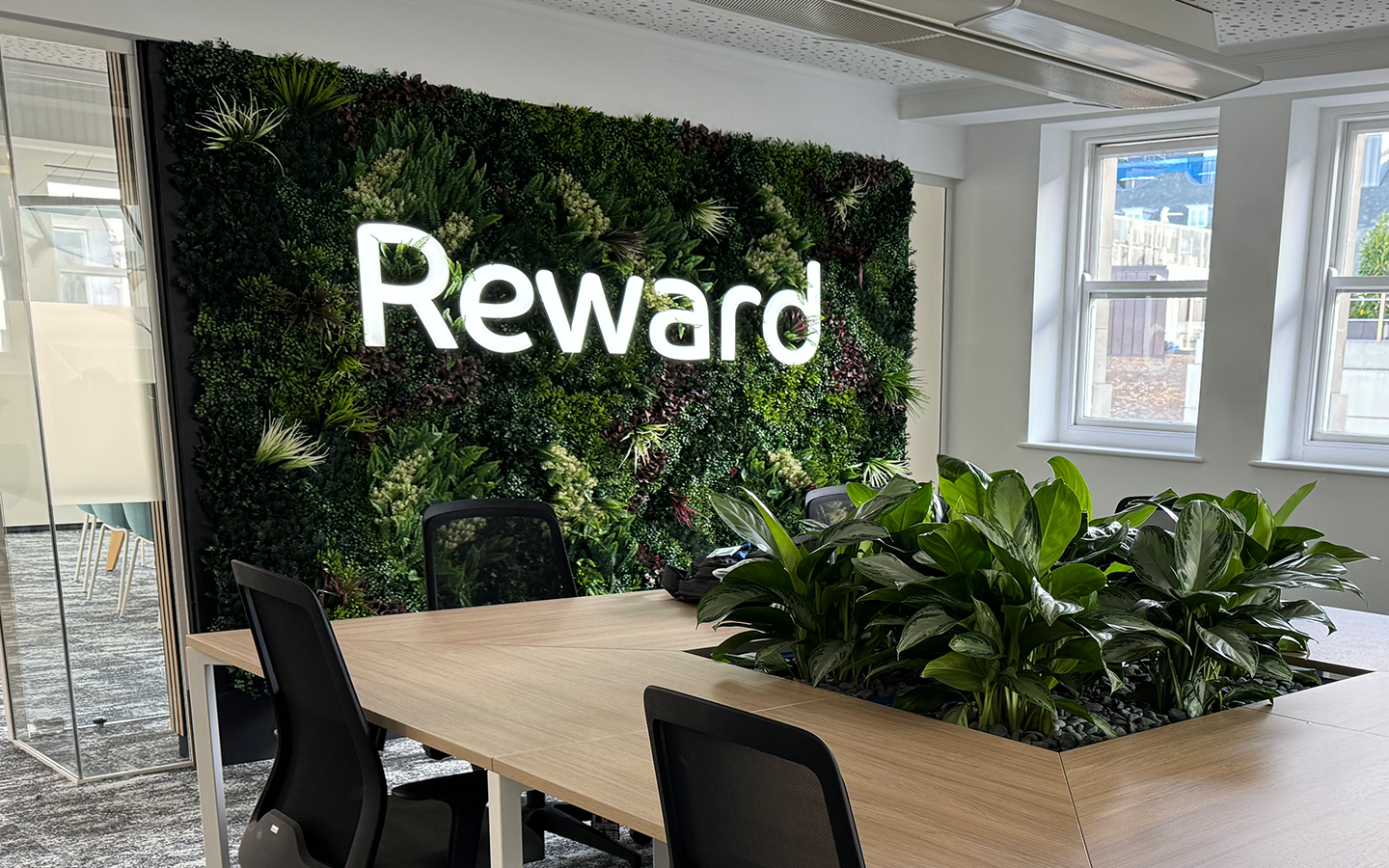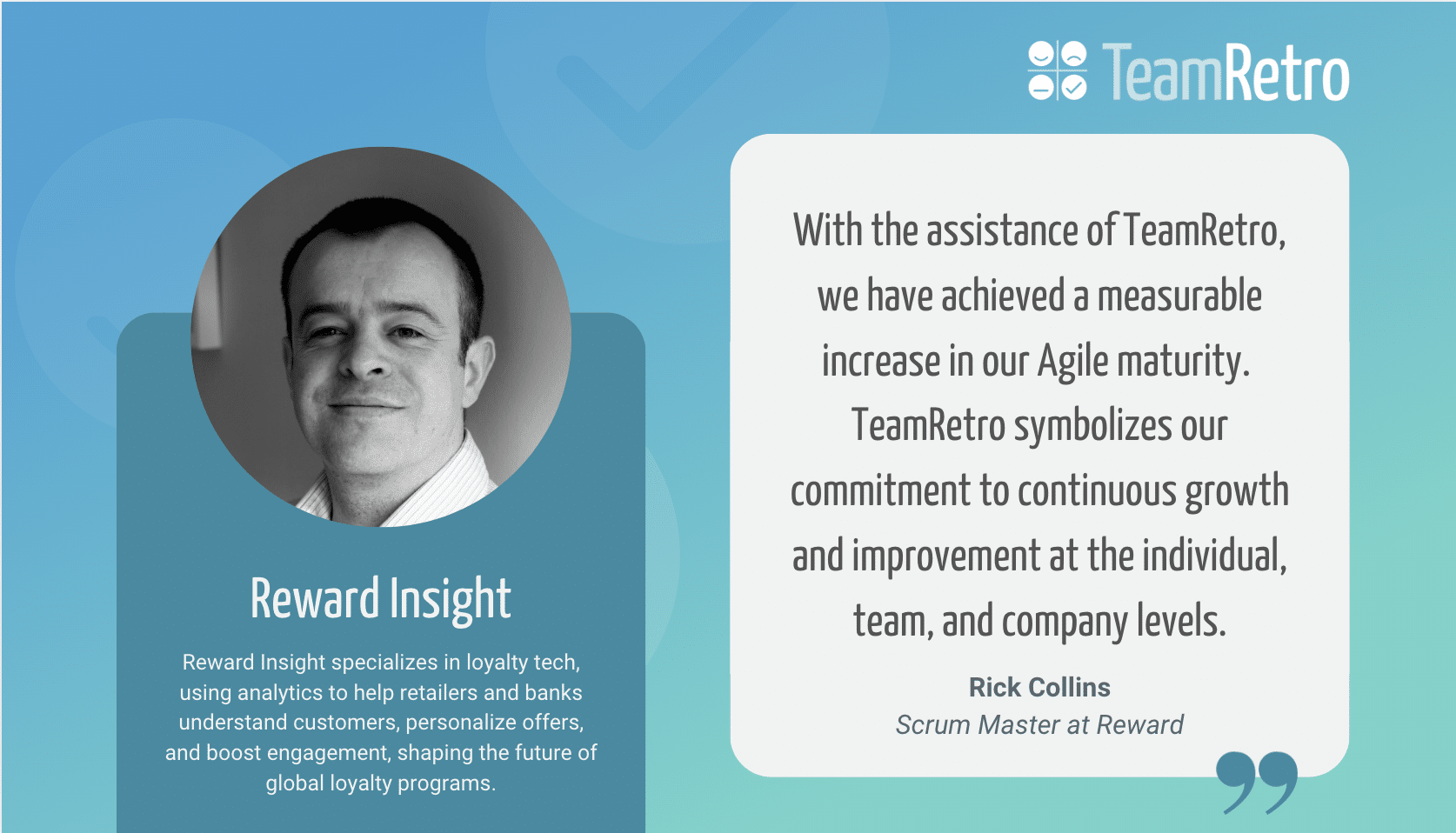Reward Insight is a London-based company specializing in loyalty technology and marketing solutions, helping businesses enhance customer engagement and drive growth. Founded in 2001, the company uses advanced analytics to deliver personalized offers and loyalty programs for leading retailers and financial institutions across 20 countries. With a strong focus on innovation and customer connection, Reward Insight continues to shape the future of loyalty programs globally.
Rick Collins is a seasoned Scrum Master and Agile Coach with over 15 years of experience in team facilitation, release coordination, and agile transformation. Currently serving at Reward, he supports global expansion initiatives and system modernization. Previously, Rick spent over a decade at Allstate Northern Ireland, honing his expertise in release management and technical leadership. With a background in architectural technology, Rick combines a unique blend of technical and collaborative skills to drive team success and deliver impactful results.
As a Scrum Master at Reward, Rick’s focus is on fostering an environment that maximizes productivity and team well-being. Reward specializes in delivering innovative loyalty solutions for sports and retail industries, underpinned by Agile methodologies that promote adaptability and continuous improvement. TeamRetro has become an invaluable tool in their journey to optimize teamwork processes.
As Rick shares “As a Scrum Master at Reward, I’m deeply committed to optimizing teamwork processes. My focus is on fostering an environment that maximizes both productivity and team well-being. To continuously improve is paramount, and TeamRetro has been an invaluable tool in this journey.”
Here’s their story…
Challenges Faced Before TeamRetro
Prior to adopting TeamRetro, Reward faced several challenges.
Rick explains, “Company-wide, our Continuous Improvement initiatives faced challenges due to a lack of consistency in how we gathered and implemented improvements. Each team adopted its own unique process, resulting in a fragmented approach and inconsistent outcomes.
At the team level, driving engagement and ensuring all team members’ feedback was considered proved challenging. The use of anonymous whiteboards in remote meetings often led to passive participation, as some individuals felt less inclined to actively contribute.”
Driving engagement and ensuring that all feedback is received has proved challenging across teams.
Discovering TeamRetro
The recommendation to trial TeamRetro came from a Development Manager with prior experience using the platform.
Not relying on hearsay alone, Rewards wanted to conduct their own due diligence.
“The Agile Delivery Group conducted thorough research and were highly encouraged by many aspects of TeamRetro, as it demonstrated strong potential to complement and enhance our existing Agile practices.” Rick explains.
How TeamRetro Supports Reward’s Agile Framework
Reward’s Agile framework incorporates elements of Scrum, Kanban, and Scaled Agile, all rooted in the principle of continuous improvement.
Rick describes how TeamRetro supports this, “ The platform’s ability to facilitate the rapid creation of retrospectives and health checks enables us to establish baselines and drive incremental improvements with greater efficiency.”

Outcomes Achieved with TeamRetro
Using TeamRetro, Reward has achieved several significant outcomes. By establishing a baseline at the start of the year and re-evaluating using the same health checks, Reward gained a clear understanding of its progress, demonstrating an increase in Agile maturity. Scheduled generation of boards ensures retrospectives are aligned with team cadence, enabling live feedback without delays. Real-time board updates remove the need for screen-sharing in meetings, promoting openness and anonymity. AI-driven grouping of feedback saves time and adds efficiency, while themed retro boards add an element of fun and engagement.
“With the assistance of TeamRetro, we have achieved a measurable increase in our Agile maturity. By establishing a baseline at the beginning of the year and then re-evaluating using the same Health Check at the end, we gained a clear and quantified understanding of our progress.” Rick says.
Reward’s team members appreciated the simplicity of the platform and its engaging features, such as emojis and GIFs, which made retrospectives enjoyable and interactive. Real-time updates encouraged honest and anonymous feedback, fostering an open and collaborative environment.
“We have found the recent enhancements to the embedded AI to be highly beneficial. Being able to quickly and intuitively group feedback live in a retrospective saves a lot of time. Team Members also appreciate the fun brought via the themed retro boards”, Rick elaborates.
Advice for Running Effective Retrospectives
Rick emphasizes the importance of consistency by using recurring templates to keep retrospectives a regular part of the workflow. Having retro boards always available encourages teams to reflect and contribute continuously. Customization of settings ensures sessions remain engaging and prevents them from becoming stale. Reviewing action items at the start of each session helps close feedback loops and ensures accountability.
Rick’s Retro Tip –
“Create a recurring template from your favorite Retro Board and use this to generate a new board at the end of every retrospective period. This means a retro board is always available for thoughts and feedback. Having continual access to a retro board, then encourages the team to give feedback and reflect continuously.
With a plethora of customizable settings, you can tweak each board to stop your retrospectives from becoming stale and uninteresting.”
Transform Your Retrospectives Today with TeamRetro
Reward’s experience highlights how TeamRetro can empower teams to enhance Agile practices, boost engagement, and achieve measurable improvements. Make your team’s retrospective meetings become even more effective and insightful.
